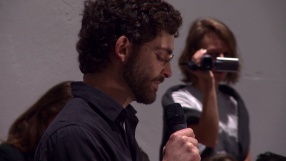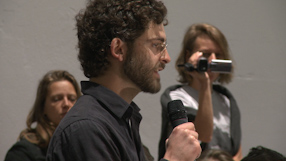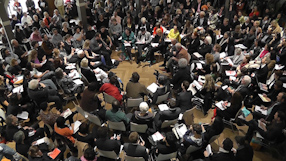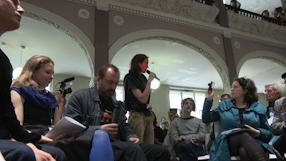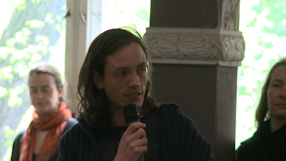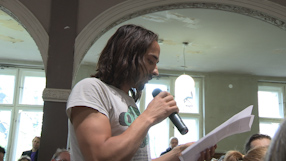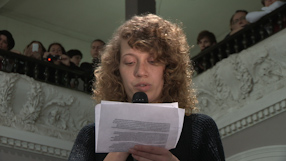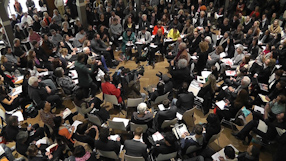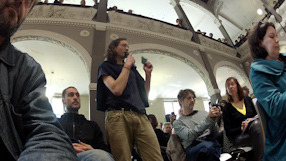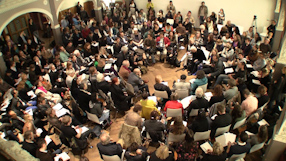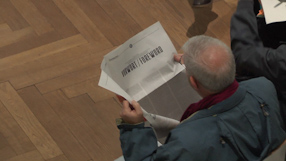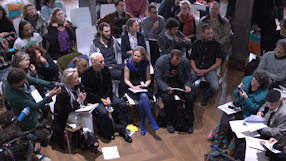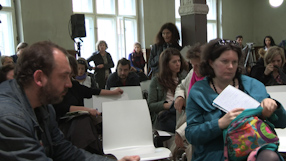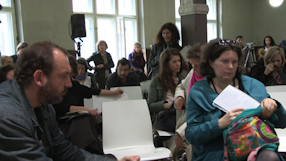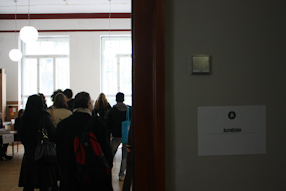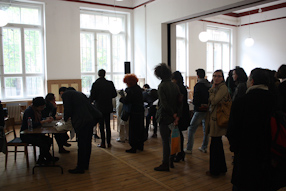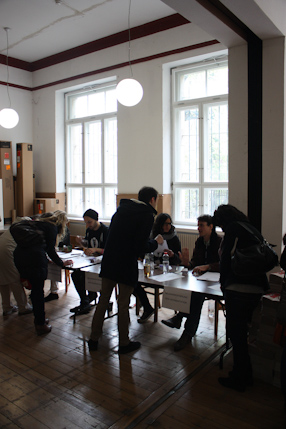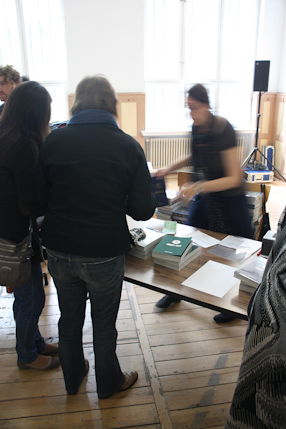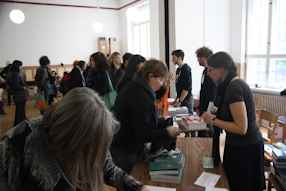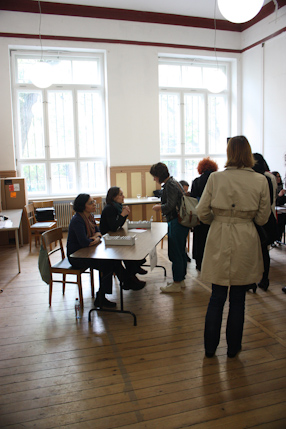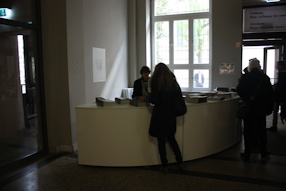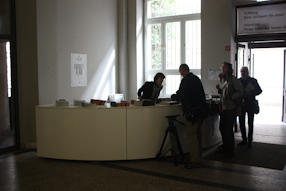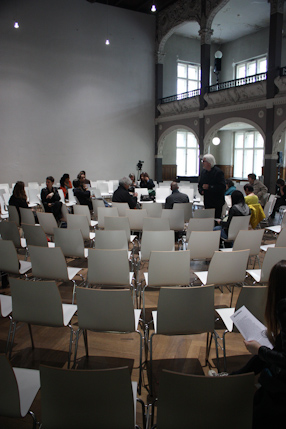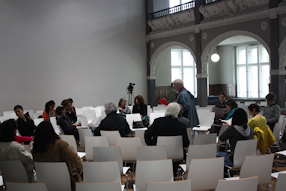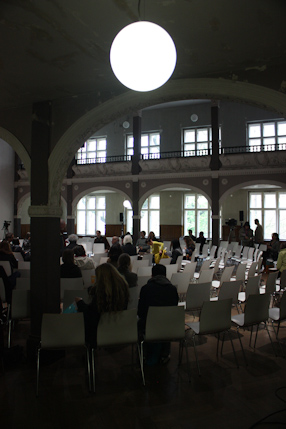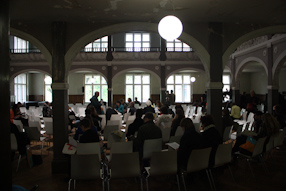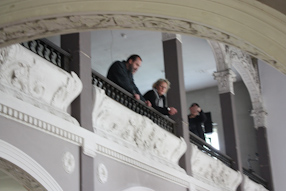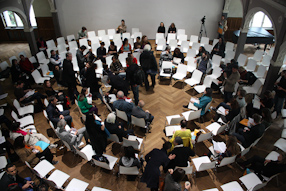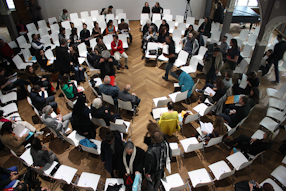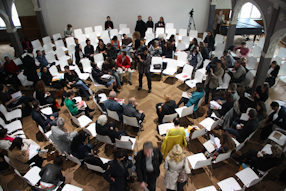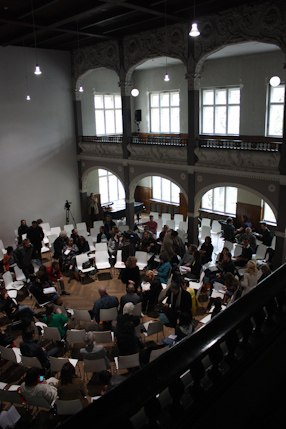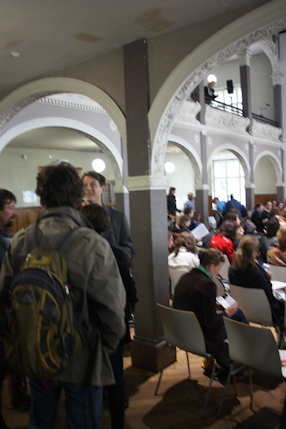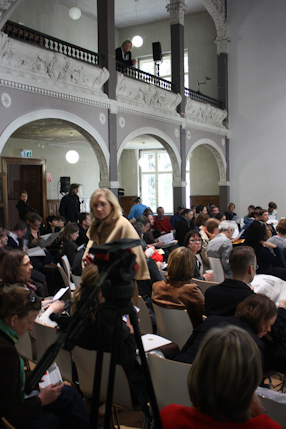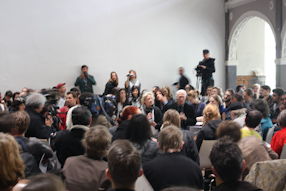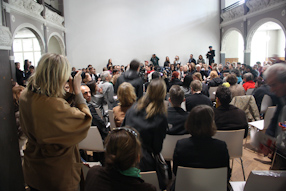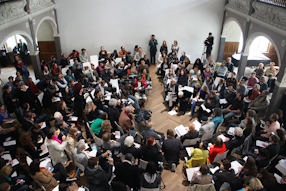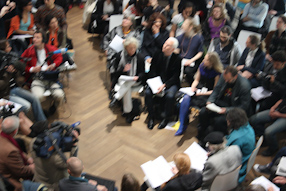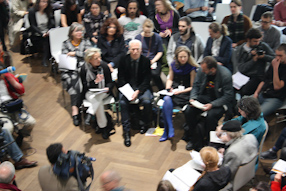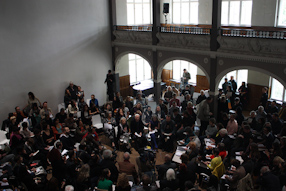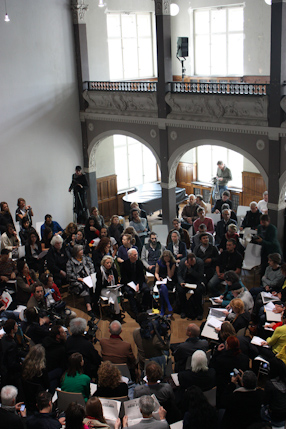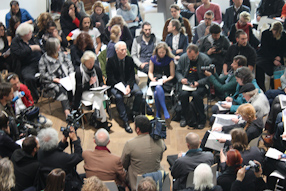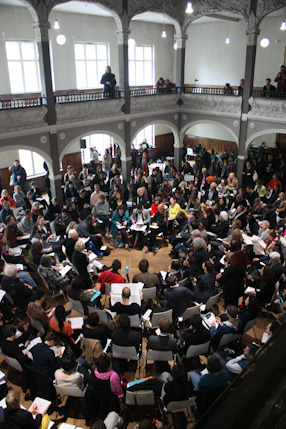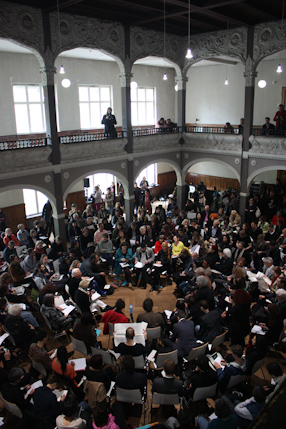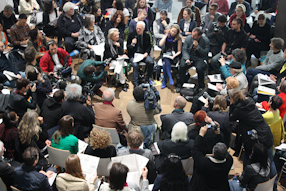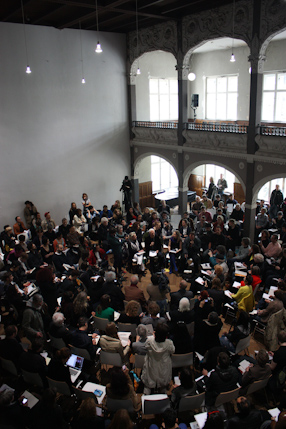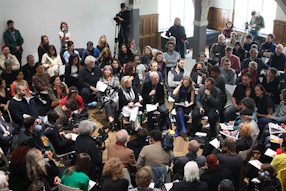Press Conference (1-50/129)
Media conference revisited
Reasons for why we believe that the traditional form of a press conference does not suit our objectives, nor - in our view - those of the Biennale?
Some preliminary remarks:
The 7th Berlin Biennale is neither a result, nor an object (being exposed, being written about etc.). It is in itself a social process, dependent on the people creating and reproducing it over the course of the two months. Everyone is invited, everyone takes part: a network of impulses where social roles (and their power to construct hierarchies) are undermined.
The Biennale – as understood by the activists – is a hybrid of forms, spaces, people and actions. Even though there is a spatial limitation between 7th Berlin Biennale and society – the KW as a spatially limited compound in Berlin –: when it comes to reality, there is no such limitation: Everyone who is entering the space takes part in the social process called 7th Berlin Biennale: journalists, activists, curators, KW employees, friends, guests etc.
Now some thoughts regarding the traditional form of a press conference:
Imagine the situation: Some very important persons sitting on a high platform and hundreds of eyes being directed to them devouring every word that comes out of their mouths. Thoughts and words are duplicated (in an oral and a written form), mediated and framed (by the context given by the news article) - but not reflected on from a different perspective, not discussed, not put into question. Rather: simple iteration. We want to break iteration. We want to break consistency. We want to confront words and positions with each other, we want to create new meanings.
Therefore, we think that the traditional form of a press conference is outdated. It consolidates a consumerist approach to such an encounter of people working in different fields of society.
On the one side the passively receiving press audience with their apparently innocent role of only-listeners and on the other side the uplifted heroes who shall deliver utterances that can be stuffed into a spectacular article, tv- or radio-show as so-called content.
Journalism is, by definition, not a neutral or impartial job. It shapes meanings, communication and actions, simply because it disposes of the technical and institutional privileges to reach out to millions of people. In the consequence, no journalist can withdraw from this position of power. She can misuse it or she can use it in a responsible manner. But she can by no means deny that her writings are deeply embedded in this structure of power.
A conventional press conference hides this structure of power, hides the reality about the relationship between interviewing journalists and the (objectified) interviewees – which is the fact that both are part of the discourse, shaping meaning in interaction with each other – and hides the possibilities that journalists have when they step out of their (also objectified) roles.
In contrast, by conceptualizing the press conference – which functions as a starting point for the event: to set (symbolically) a beginning – as an interactive communicative process where different people, discourses and positions come together, we try to avoid from this very beginning that the Biennale is objectified: as an event, as a spectacle, as a “topic” for a journalistic article etc.
To sum up: We pledge for something more interesting. Conceiving this encounter as one of workers from different fields that have a responsability as participants of society. A gathering for the interactive deliberation about how to collectivley contribute to the emergence of a solidarious society without economical exploitation, planetary devastation or authoritarian decision structures.
Grischa Dallmer
